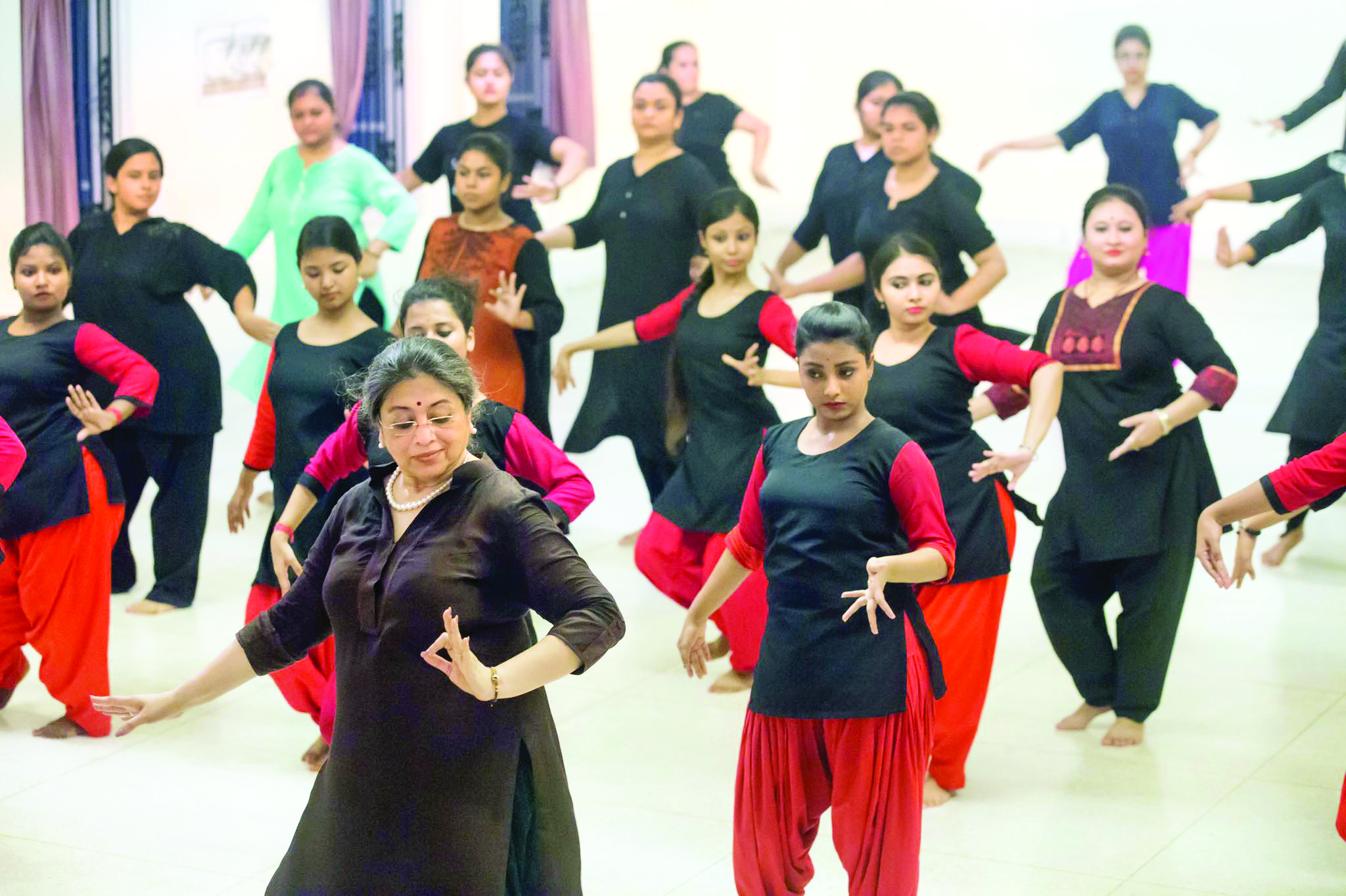All the world’s a stage
Times are changing and an increasing number of students, parents, and young professionals are now recognising the vibrant and diverse opportunities in performing arts

While parents are quite enthusiastic when children take up dance, music, drama or any other performing arts at school, they dread if they want to pursue it as a profession. In fact, this has been ingrained in society’s perception that these artistic pursuits are merely hobbies and not viable as mainstream careers. Fortunately, times are changing, and an increasing number of students, parents and young professionals are realising the potential of pursuing a career in performing arts.
Careers such as actors, dancers, musicians, directors, stage managers, arts administrators, stand-up comedians, choreographers, scriptwriters, elocutionists and many other roles can provide a platform for artistic expression while providing a sustainable livelihood.
Danseuse par excellence Tanusree Shankar tells us that apart from a passion for the art form, institutionalised training is always an added advantage. “There was a time when students were not encouraged to take up dance, music or other art forms professionally. Parents worried about their future. Today, the mindset is changing for the better. There are many youngsters, who are pursuing performing arts with a lot of passion professionally,” said the veteran dancer.
Celebrated dancer-choreographer Sudarshan Chakravorty believes only when you are a big fan of the art form — be it dance, music, or theatre — should you think of taking it up professionally.
“I started dancing with a lot of passion. Of course, earning money is an important aspect but at that time, we didn’t know it could become our livelihood. With time, of course, there are more exposure and opportunities through the internet, TV and social media. The industry has expanded and now there’s capacity to take in a lot of people from performing arts,” he said.
However, both Shankar and Chakravorty expressed concerns about the proliferation of “half-baked” dance teachers who hastily establish institutions today.
“These days, learning has taken a back seat. This is because most people today are learning from YouTube and social media. So, there’s an increasing number of half-baked dancers who have opened up institutions. Any performing artist requires methodical discipline and years of training. If you learn properly for 10-12 years, then you are qualified enough to become a dance teacher. The performance quality and the parameters of the teachers and performers have gone down. Also, two of the 100 dancers in Reels can really dance,” he said.
Studying performing arts helps develop strong communication and presentation skills. A performing artist learns to effectively convey messages, emotions, and narratives to an audience. This ability to communicate effectively can be valuable in various personal and professional settings. Take the example of Sujoy Prosad Chatterjee, a well-known interdisciplinary artiste from Kolkata, who has carved a niche of his own in the cultural world. Recently, Sujoy was on a three-week trip to the UK to celebrate the 162nd birth anniversary of Rabindranath Tagore at various events. Sujoy didn’t attend any liberal arts school. Instead, he embraced the path of paving his artistic journey. However, he acknowledges the significance of institutionalised training. Sujoy tells us that today he regrets not going to a theatre or a film school. “Education provides us with invaluable insights and knowledge that are essential for any profession, including the creative arts. It serves as a foundation that enriches artistic expression and nurtures the skills required to excel in one’s chosen field,” said the multifaceted artiste.
People who are passionate about artistic expression have limitless opportunities in the exciting and diverse world of performing arts. From being a theatre director, filmmaker, stage manager, casting director, talent agent, make-up artist, and light designer, to music director the performing arts industry encompasses a wide range of projects today.
Dr Smriti Bharadwaj, HoD, theatre and music, Liberal and Creative Arts, Lovely Professional University, mentioned that formal education is necessary to pursue a variety of job alternatives, such as teaching and training, but it is not usually a stringent need to get into performing arts. “However, going for a degree or specialised training in a performing arts field can give you a strong foundation, technical know-how, networking possibilities, and exposure to other aesthetic philosophies, which is vital to give you a consistent space in the entertainment industry,” she said.
According to her, an individual’s chances of success are considerably increased by formal education or training in the performing arts. “While successful performers have existed without a formal education, regular training offers a solid foundation, improves creative knowledge, and polishes technical abilities. Additionally, obtaining a degree or specialised training frequently opens doors to real-world opportunities like performances and internships,” she said.
Veteran thespian and film actor Sohini Sengupta informed how several top Hollywood actors attended The Juilliard School in New York. From Robin Williams, Kevin Spacey, Oscar Isaac to the absolutely ravishing Viola Davis, the list of celebrity alumni from Julliard is endless. Back in India, the National School of Drama (NSD) and Film and Television Institute of India (FTII) have gifted innumerable tal



